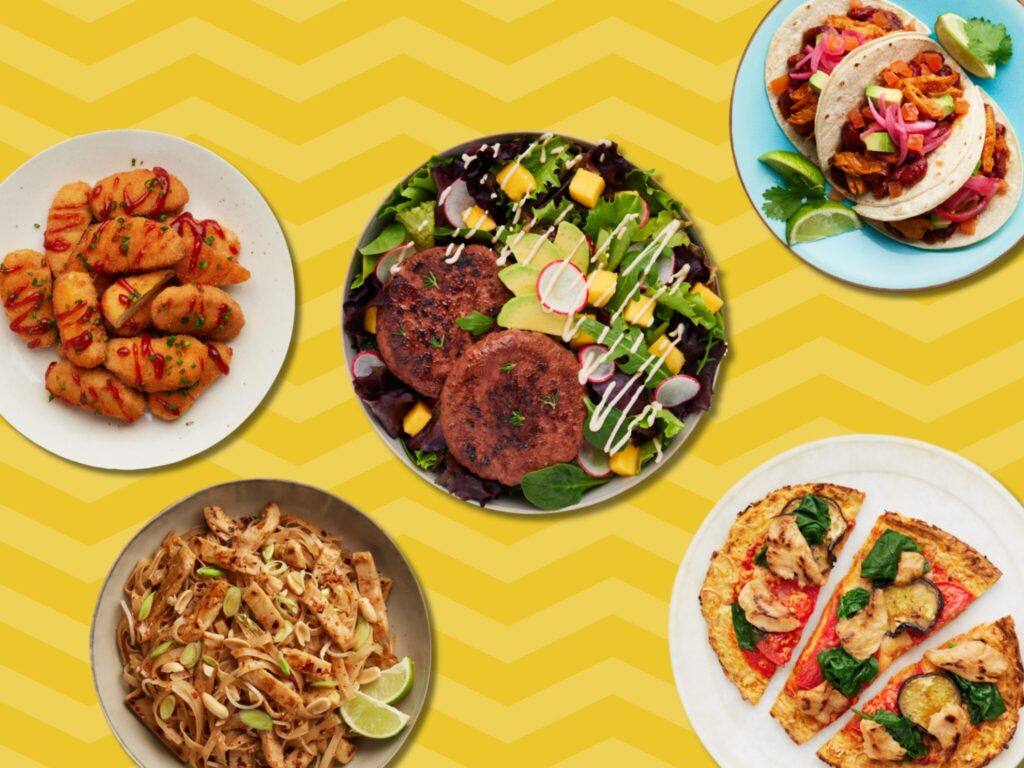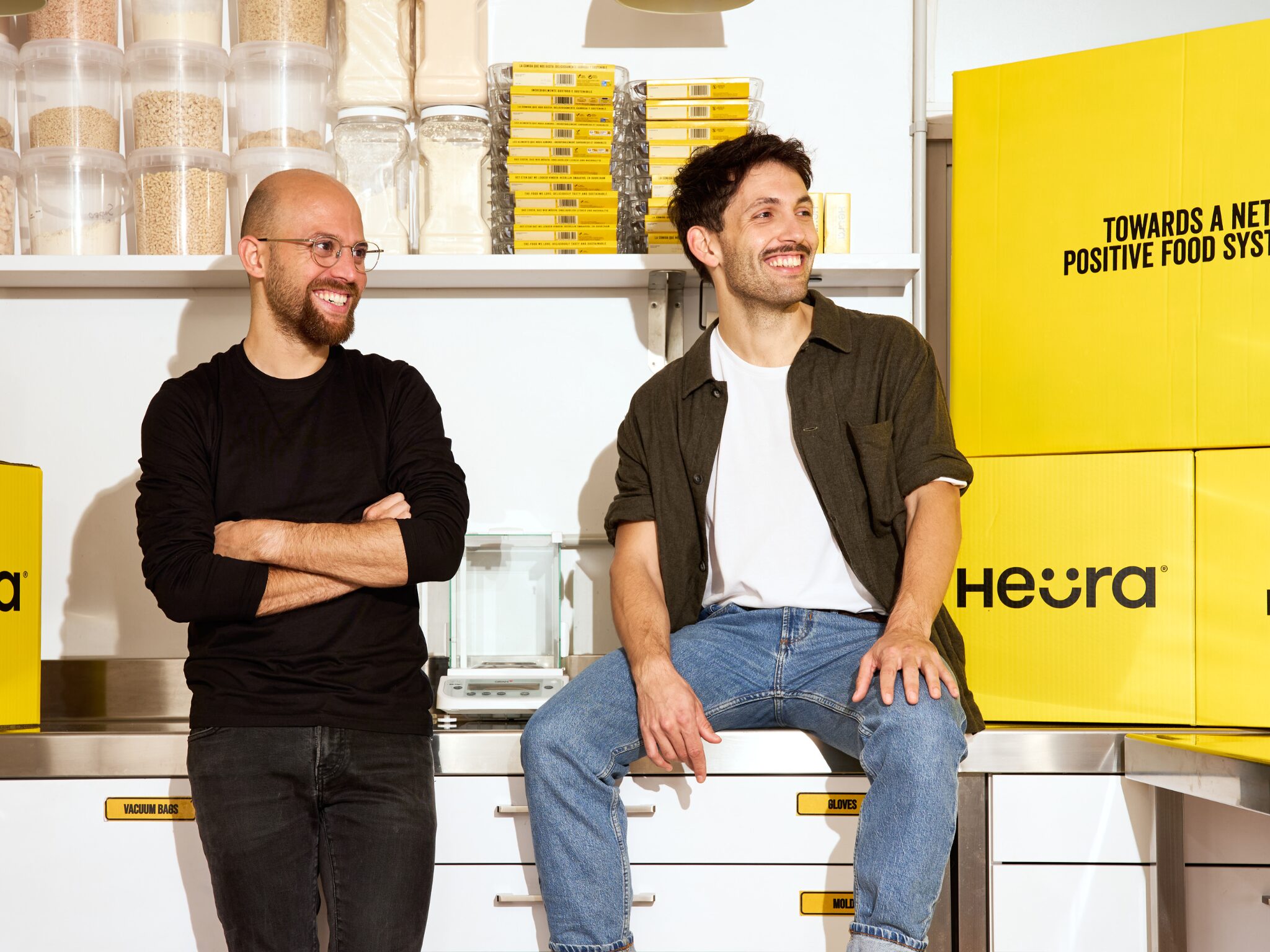Heura Raises €40M Series B as Startup Promises Profitability in Boost to Plant-Based Industry
4 Mins Read
Spanish plant-based meat startup Heura has raised €40M ($43M) in a Series B round, in what is one of the largest investments in a vegan company in 2023. The company is now on the path to profitability and will look to license its tech and accelerate expansion.
Heura has closed the second-largest funding round for a plant-based company in 2023 (only behind Japan’s DAIZ), raising €40M ($43M) in Series B financing. It follows a €20M ($21.5M) pre-Series B round in 2022, with total funding for the brand reaching €88M ($94.6M).
Participants in the Series B round included Upfield (owned by investment firm KKR), Unovis Asset Management, the European Circular Bioeconomy Fund, and Newtree Impact, which Heura says builds a huge plant-based alliance, with a “board that will focus on top-notch tech to set new industry standards”.
Kim Anders Odhner, Managing Partner Europe-Asia at Unovis and Board member at Heura, notes that “the investment from Upfield is a strong validation of the company’s positioning and prospects”.
A tech-forward, clean-label alt-meat lineup

Founded in 2017, Heura makes clean-label plant-based analogues for chicken, beef, pork and fish, with a 19-strong lineup available in more than 22,000 locations in over 20 countries. One of the newest products to make a wave is its York-style deli ham slices, which were launched in October in Spain and France. Since then, the brand claims it is already the top rotating cold-cut alternative in its home country.
The ham analogues were the result of Heura’s first patent-pending tech, led by its Good Rebel Tech division, which was unveiled in April. Leveraging a novel thermomechanical processing technique, it can create additive-free vegan products with superior sensory and nutritional values and fewer ingredients, using only protein, water and oil to structure the product.
This isn’t really AI, but the tech relies upon using mathematical models in a similar fashion. “The main difference is that we are basing our approach and models on new scientific understanding of plant proteins that we generate in the tech lab,” Heura co-founder and CEO Marc Coloma told Green Queen in October. “We can improve [the] accuracy of our predictions, limit biases and, most importantly, develop breakthrough technological solutions which are based on new scientific knowledge; rather than optimising technologies that already exist based on published existing data.”
The company’s CTO, Isabel Fernandez, added: “We use a transdisciplinary approach to scientific research to overcome the greatest challenges the industry is facing. Our goals are ambitious. We are not aiming for small, incremental advancements based on cumulative improvements on what already exists, but rather exponential progress from scientific discoveries yielding breakthrough technological innovations.”
Those innovations can be applied across multiple plant-based categories, including deli meats, breaded analogues, whole-cut meats and seafood, and dairy products. “This approach enables us to not only cater to diverse tastes, but also aligns with our commitment to providing healthier, high nutrition and additive-free alternatives for consumers,” explained Coloma.
Giving consumers – and companies – what they want

The latest funding round will allow Heura to “boost its impact in the food industry”, accelerate international expansion, and explore more collaborative models beyond its own meat alternatives. Most notably, it will drive the company towards profitability, allowing the brand to continue leading the alt-protein sector’s growth in Spain and consolidate its footprint across markets like the UK and France.
Moreover, the company hopes to expand its portfolio of products as well as tech patents, while reaching new audiences through tech licensing. Its current offerings already play to key consumer concerns – health has emerged to be an increasingly important consideration for Europeans choosing to eat plant-based lately.
The 2023 EU Smart Protein survey, which covered 7,500 respondents in 10 countries, revealed that 51% of Europeans are eating less meat, with health being the primary reason why (cited by 47%). Likewise, health was the second-biggest purchase motivator for vegan food (after taste), chosen by 46% of respondents. Moreover, concerns about nutritional inadequacies are one of the major deterrents, with 24% of consumers selecting that reason.
Even globally, an Ingredion survey found that 78% would spend more money on products with ‘natural’ or ‘all-natural’ packaging claims. So the demand for products like the ones Heura is making is clear. “This achievement uplifts Heura’s vision of being at the forefront of Europe’s protein transition,” Coloma says about the latest funding effort.
“To change the food system, we need to move the pressure from consumers to the food industry, placing health and sustainability as non-negotiable,” he adds. “This new chapter will drive us to profitability while allowing us to develop breakthrough technology to tackle the key challenges within the industry in a scalable way.”
It marks a departure from a tough financial landscape for plant-based meat companies, which have seen VCs desert the space over the last year. Reflecting on this, Odhner highlights that Heura’s strengths have enabled the company to remain on strong footing. “Responding decisively to the slowing economy, the company continues to capitalise on a really strong following and robust market share in the Iberian peninsula, and is showing strong growth as it expands into France,” he tells Green Queen.
“The major differentiator lies in the company’s products and its positioning – Mediterranean flavours, clean label offerings, and innovative technologies aimed at extending shelf life, improving nutritional density, and introducing popular new formats.”




